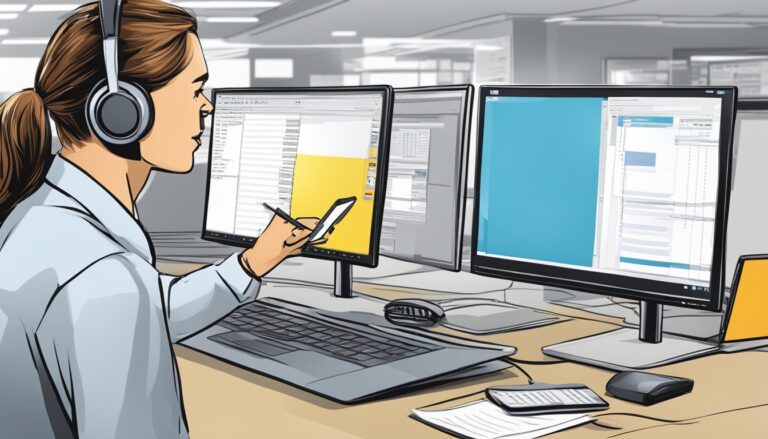100+ Accountability Interview Questions: Essential Inquiries for Assuring Responsibility

Accountability is an essential trait that employers look for in potential hires. During an interview, questions aimed at understanding your level of accountability will often dictate how reliable and responsible a candidate you appear to your potential employer.
Here a list of sample 100+ Accountability Interview Questions seek to gauge your ability to own up to your actions, both successes, and failures, and to see how you handle tasks and commitments within a professional setting.

When preparing for an interview, anticipate questions that require you to demonstrate your accountability. You might be asked to provide examples from your past work experiences where you had to take responsibility for your actions or the outcome of a project.
The way you answer these questions can reflect your integrity, work ethic, and commitment to learning and growth, all of which are qualities highly valued by employers.
Understanding the importance of accountability will help you craft answers that showcase your self-awareness and dedication. Think about times when you’ve navigated through challenging situations, made difficult decisions, or worked through feedback to improve your performance.
Reflecting on these experiences and being ready to discuss them will help you present yourself as a trustworthy and dependable professional.
Page Contents
- 1 Understanding Accountability
- 2 Accountability Interview Background Questions (with Sample Answers)
- 2.1 1. Can you describe your previous work experience?
- 2.2 2. What skills did you gain from your last job that are relevant here?
- 2.3 3. How does your educational background align with this position?
- 2.4 4. Have you had experiences where you were responsible for a mistake at work? How did you handle it?
- 2.5 5. Describe a situation where you had to work with a difficult colleague.
- 2.6 6. What strategies do you use to manage tight deadlines?
- 2.7 7. Can you share an example of how you have handled constructive feedback?
- 2.8 8. Describe a project where you took the lead.
- 2.9 9. What is the most significant professional challenge you have overcome?
- 2.10 10. How do you stay accountable in a remote work environment?
- 3 10 Accountability Interview Questions related to Experience (with Sample Answers)
- 4 List of 100 Accountability Interview Questions
- 5 Incorporating Accountability into Company Culture
- 6 Conclusion
Understanding Accountability
When you engage in the workplace, your understanding of accountability is paramount. Accountability is the obligation to report, explain, and be answerable for resulting consequences.

In a leadership role, you embody the core tenet that actions and decisions fall under your jurisdiction. Effective leaders understand that accountability is not just personal but extends to the team’s performance.
Ethics and integrity are the bedrocks of accountability. They ensure that you conduct business in a fair, transparent manner, with decisions made on a moral foundation. Accountability in ethics means you align your actions with the company’s values and standards, creating trust and reliability.
In terms of performance, accountability is measurable. For instance, when you set clear objectives:
| Aspect | Description |
|---|---|
| Goals | You set transparent and achievable goals. |
| Progress | Regularly assess and report on the progression. |
| Outcome | Take ownership of the final results, regardless of the outcome. |
Your actions reflect your commitment to these standards. By upholding integrity, you demonstrate to your colleagues that you stand firm with your principles, no matter the challenge. Engaging with accountability ensures a well-functioning, respectful, and successful professional environment.
Accountability Interview Background Questions (with Sample Answers)
1. Can you describe your previous work experience?
A: I have worked for five years in sales, managing client accounts and consistently meeting sales targets.
2. What skills did you gain from your last job that are relevant here?
A: I honed my negotiation and communication skills, which will be invaluable in a team-focused environment.
3. How does your educational background align with this position?
A: My degree in Business Management equipped me with knowledge in operations and finance, aligning with the requirements of this role.
4. Have you had experiences where you were responsible for a mistake at work? How did you handle it?
A: Yes, I once made an error in a sales report. I immediately acknowledged it, corrected the mistake, and implemented a new check system to prevent future issues.
5. Describe a situation where you had to work with a difficult colleague.
A: A colleague and I had differing approaches, so I initiated a dialogue to understand their perspective, leading to a collaborative solution.
6. What strategies do you use to manage tight deadlines?
A: I prioritize tasks, set interim deadlines, and, if necessary, request assistance to ensure timely completion.
A: I received feedback on my presentation skills, took a public speaking course, and applied the learnings to improve effectively.
8. Describe a project where you took the lead.
A: I led a cross-departmental project to implement a new CRM system, coordinating between teams and driving the project to completion on schedule.
9. What is the most significant professional challenge you have overcome?
A: Merging divergent processes after a company acquisition was a major challenge I navigated by setting clear shared goals and communication channels.
10. How do you stay accountable in a remote work environment?
A: I use project management tools and daily check-ins to maintain visibility of my work and progress with my team.
- Can you discuss a challenging project you’ve worked on in the past? A: You might answer by detailing the specific challenges you faced, the actions you took to overcome them, and the successful outcome.
- How does your previous experience prepare you for this role? A: Your response should connect past responsibilities and achievements with the job requirements of the role you’re interviewing for.
- Describe a time when you made a mistake at work; how did you handle it? A: You’d want to acknowledge the mistake, explain the steps you took to correct it, and outline the learnings you applied moving forward.
- Could you give us an example of how you handle tight deadlines? A: In your answer, include time-management strategies you employ and how you prioritize tasks to meet deadlines effectively.
- Tell me about a time when you went above and beyond your job description. A: Highlight a specific instance where you took initiative or exceeded expectations and the positive impact it had.
- What did you do in your last job to increase your team’s productivity? A: Your answer should cover any strategies or tools you introduced and the measurable results of your actions.
- Describe a professional achievement you are most proud of. A: Reflect on a significant milestone in your career, explaining the challenges, your role, and the value it added.
- Tell me about a time when you had to quickly adapt to a significant change at work. A: Share an instance that demonstrates your flexibility and problem-solving skills in the face of change.
- Can you provide an example of how you’ve contributed to a positive team environment? A: Detail specific actions you’ve taken to foster collaboration, support team members, and build a constructive team culture.
- How do you ensure the quality of your work under pressure? A: Discuss your methods for maintaining high standards, such as double-checking work and managing stress, even in high-pressure situations.
List of 100 Accountability Interview Questions

When you are preparing to conduct or face an accountability interview, consider the following questions to assess responsibility and ownership of actions.
- Can you describe a situation where you made a mistake and how you handled it?
- How do you prioritize your tasks when facing tight deadlines?
- What strategies do you use to meet your commitments?
- Can you give an example of a goal you didn’t meet and how you responded?
- Describe a time when you had to give someone difficult feedback.
- How do you ensure that your team members understand their responsibilities?
- What do you do when you realize you won’t meet a deadline?
- Explain a situation where you took initiative to solve a problem.
- How do you track your work progress?
- What is your process for delegating tasks?
- How have you handled a situation where a team member was not pulling their weight?
- How do you assess your own performance on a project?
- Describe a time when you had to take responsibility for a project failure.
- What steps do you take to correct errors in your work?
- How do you handle situations where there is ambiguity in your task?
- Can you explain a time when you improved a process at work?
- What role does accountability play in team success?
- How do you manage conflicting priorities?
- Give an example of how you manage expectations with clients or stakeholders.
- Can you discuss a time when you had to admit you were wrong to a colleague or boss?
- How do you handle criticism or feedback regarding your work?
- What is your approach to setting and achieving your goals?
- How do you stay focused on your objectives in a changing environment?
- Describe a time when you went above and beyond your job duties.
- What do you do to ensure you understand expectations clearly?
- How do you determine which tasks are high priority?
- In what ways do you set a good example of accountability to others?
- Share an example of a proactive change you made in your work habits.
- How do you react if you find out a project you worked on received negative feedback?
- Can you describe a time when you disagreed with a decision and how you handled it?
- How do you track your responsibilities in a project?
- Describe your method for ensuring a task is carried out effectively.
- What techniques do you use to manage stress when facing project challenges?
- How do you handle unexpected obstacles in your workflow?
- Can you provide an instance of a time you improved the efficiency of a task?
- How do you take ownership of your professional development?
- In what way do you ensure clarity when communicating tasks to others?
- Describe a time when you helped a colleague overcome a challenge.
- How do you approach decision-making in a team setting?
- What methods do you use to stay accountable to yourself?
- Can you talk about a time when you received unexpected changes to a project?
- How do you maintain responsibility for a task without micro-managing?
- Describe your approach to following up on delegated tasks.
- What do you do to continue performing well under pressure?
- How do you ensure your team’s actions align with the overall company objectives?
- Describe a time when your reliability was key to a project’s success.
- How do you decide which feedback to act upon when improving your work?
- What do you do if you notice a mistake made by someone else on your team?
- How do you build a culture of accountability within your team?
- Can you discuss a time when you took on additional responsibilities?
- How do you ensure that team goals are understood and aligned with company vision?
- Describe a situation where you were held accountable for actions that were not entirely your fault.
- How do you manage and track your performance against targets?
- What systems do you have in place to supervise completion of your tasks?
- How do you judge the success of your projects?
- In what ways do you ensure your actions match your words?
- How do you recover from setbacks in your work?
- Can you share an experience where you anticipated potential problems and took preventative measures?
- In what manner do you report project progress to your superiors?
- How do you influence your colleagues to uphold accountability standards?
- What is your process for reflecting upon and learning from your mistakes?
- Describe a situation in which you were proactive in preventing an issue.
- How do you support your teammates to help them meet their commitments?
- Can you give an example of a difficult decision you had to make and how it impacted your team?
- What steps do you take to ensure the quality of your team’s work?
- How do you keep track of multiple responsibilities simultaneously?
- Share a time you had to hold yourself accountable in a public or team setting.
- How do you react to feedback that could lead to significant changes in your work?
- What is your response when a team member fails to deliver on their promise?
- Describe a time when maintaining accountability improved your relationship with a client or colleague.
- How do you maintain transparency with stakeholders about the status of projects?
- What measures do you take to avoid repeating the same mistakes?
- How do you balance your professional and personal accountability?
- Can you provide an example where your attention to detail prevented an error?
- What is your approach to receiving and integrating feedback into your work?
- Describe the process you follow when you need to update a project’s timeline.
- How do you handle disagreements about responsibilities within your team?
- Share an instance where your integrity was tested in the workplace.
- How do you demonstrate accountability for outcomes beyond your direct control?
- What actions do you take to ensure you don’t miss deadlines?
- How do you take initiative when there is no clear directive from superiors?
- In what ways do you mentor others in professional accountability?
- Describe a situation where you had to adjust quickly to changes in expectations.
- How do you prepare for potential obstacles to your work goals?
- What is your process for ensuring fair workload distribution among your team?
- How do you stay accountable in a remote or virtual work environment?
- Describe a time when you showed resilience in achieving a work objective.
- How do you ensure ongoing communication with stakeholders throughout a project?
- In what way do you contribute to a work environment that values accountability?
- Can you share your experience with a challenging project that required personal accountability?
- How do you navigate accountability when working with external partners?
- What is your process for making amends if your work negatively impacts someone else?
- How do you maintain a positive attitude while facing failures or setbacks?
- Share how you prioritize when everything seems like a priority.
- How do you monitor and adapt to the progress of long-term goals?
- What measures do you have in place for self-evaluation?
- How do you keep your team motivated to maintain high standards of accountability?
- Can you describe a time when being accountable led to professional growth?
- How do you ensure that you do not overlook details in your work?
- Describe a situation where your dedication to accountability had a positive impact on your career.
Incorporating Accountability into Company Culture
Creating a culture of accountability within your organization involves a strategic approach that integrates hiring practices, promotes a respectful culture, and invests in ongoing training. When done effectively, it fosters trust and reinforces the values you hold.
Ongoing Training and Development
Training is the cornerstone of instilling accountability in your company culture. Through consistent and effective training programs, you empower your employees with the knowledge and skills they need to fulfill their responsibilities competently.
- Initial Training: Begin by onboarding new hires with a comprehensive introduction to the company’s values, including accountability. Make sure to outline clear expectations and the importance of being answerable for their actions.
- Regular Workshops: Continue to offer workshops that reinforce accountability. These can include role-playing scenarios, case studies, and team-building exercises that emphasize respect and trust among colleagues.
- Mentorship Programs: Pair up less experienced employees with mentors who exhibit strong accountability. This provides them with a role model and a source of guidance.
- Skill Upgrading: Keep your team’s skills sharp and up-to-date. Encourage them to attend conferences, attain certifications, and take part in external training that align with the organization’s goals.
Remember, ongoing development is not a one-time event but a continuous process to maintain a culture of accountability. Through these steps, you ingrain the principles of accountability in daily operations and strategic management, supporting your organization’s growth and success.
Conclusion
When conducting interviews that assess accountability, your goal is to ascertain a candidate’s sense of responsibility and their ability to own up to their actions. Preparation is key—ensure you understand the nuances behind each question to gauge the depth of the responses effectively.
Questions to Reflect On:
- Have you brought out examples of the candidate being responsible for both successes and failures?
- Did the interviewee demonstrate an understanding of consequences and a readiness to take corrective action?
Remember, the ideal candidate will:
- Display Honesty: Openly admits mistakes.
- Show Ownership: Takes full responsibility for tasks.
- Exhibit Problem-solving: Actively works on solutions.
- Prioritize Learning: Seeks growth from experiences.
Utilize the responses to these accountability questions to discern candidates who will positively contribute to your company culture and drive results. Your discernment here is critical for building a reliable and proactive team.







